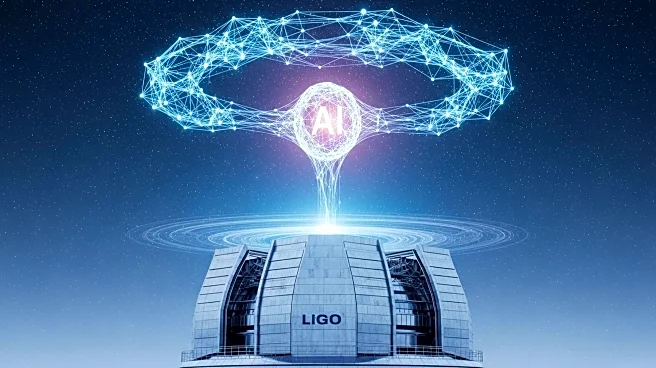What's Happening?
Google DeepMind's AI technology has been integrated into the Laser Interferometer Gravitational-Wave Observatory (LIGO) to reduce noise and improve sensitivity. This advancement could enable the detection of intermediate-size black holes, which have not been confirmed before. The AI reduces noise by up to 100 times, allowing LIGO to better detect gravitational waves from black hole collisions. This development marks a significant step in gravitational wave astronomy.
Why It's Important?
The ability to detect intermediate-size black holes would fill a gap in our understanding of black hole formation and evolution. These objects, with masses around 1000 times that of the Sun, could provide insights into the processes that govern the universe's structure. The AI's enhancement of LIGO's capabilities represents a major technological advancement in the field of astrophysics.
What's Next?
Further testing and integration of the AI technology into LIGO's operations are necessary to ensure its effectiveness over extended periods. Researchers will continue to refine the AI's application to other aspects of gravitational wave detection, potentially leading to more discoveries. The identification of intermediate-size black holes could reshape theories about cosmic evolution.
Beyond the Headlines
The integration of AI into scientific research raises ethical and practical considerations, including the balance between human expertise and technological automation. The cultural impact of these advancements may influence public perception of AI and its role in scientific discovery.










